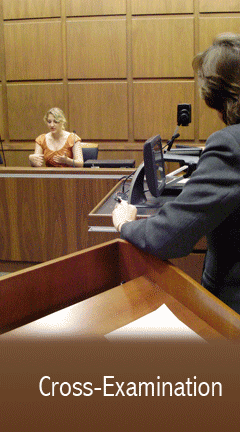Archival Notice
This is an archive page that is no longer being updated. It may contain outdated information and links may no longer function as originally intended.
Home | Glossary | Resources | Help | Course Map
Challenges of Cross-Examination
Cross-examination is one of the most misunderstood aspects of the adversary system. However, it does not have to be a fearful experience for the expert. Cross-examination is designed to guarantee a fair trial. It has six general purposes with regard to the expert witness. These are to establish the expert's:
- Lack of perceptive capacity or application (i.e., failure to do homework).
- Inadequate recollection of the applicable facts.
- Bias, prejudice, interest in the outcome, or the motivation for particular testimony.
- Questionable character, reputation or qualifications.
- Prior inconsistent statements or conduct (i.e., if the expert testified to different conclusions in another case in which the facts and evidence were approximately the same, that can be used to impeach testimony).
- Inconsistency with recognized published authorities or learned treatises.
The expert should not be afraid of cross-examination. It allows the expert to solidify the impression made through prior direct testimony.
The likely place for concessions will be during cross-examination. Unlike direct examination, cross-examination may be conducted using leading questions; that is, questions that state a fact and ask the expert to agree with it. A well-designed cross-examination will avoid letting the expert repeat his conclusions. Instead, it will focus on attacking the expert's credibility, methodology or result(s) and on seeking concessions.
Again, the Federal Rules of Evidence identify the grounds on which cross-examination is permissible. A witness may be impeached (challenged) with:
- Proof of bias.
- Prior inconsistent statements (written or oral, under oath or unsworn).
- Prior convictions.
- Proof of having a dishonest character.
The last item may be accomplished either by questioning the expert witness about some dishonest act he committed or by bringing in witnesses to testify to the expert's character as a dishonest person.


